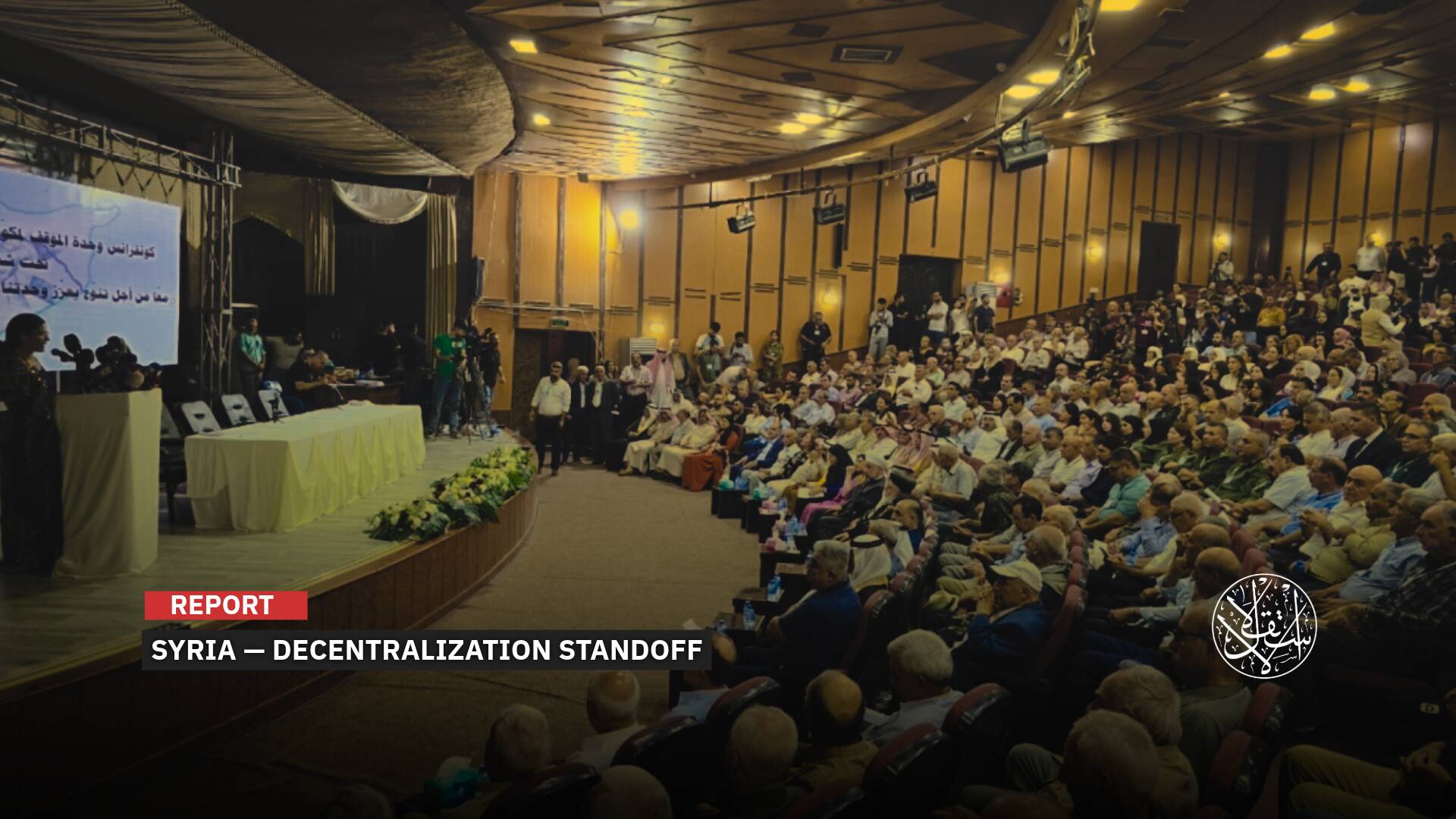Inger Stojberg; Former Danish Anti-Islam and Anti-Migration Minister, Imposed Tough Laws Against Asylum Seekers

Inger Stojberg, 48, the former Danish Migration and Integration Minister who was convicted on December 13, 2021 for breaking the law, after she ordered the illegal separation of spouses of asylum seekers in the country and was sentenced to two months in prison, in a rare event in this Scandinavian country, according to The Washington Post.
Stojberg has boasted of having passed more than 110 amendments restricting the rights of foreigners, and its policy was supported by a far-right nationalist People's Party staunchly anti-migrant and asylum seekers.
The former Minister, who was frequently critical of Islam, sparked controversy in 2017, when she posted pictures of herself with a cake on Facebook to celebrate the 50th amendment to the rights of foreigners in Denmark.
Historic Trial
On December 13, a Danish court sentenced former Migration and Integration Minister Inger Stojberg to 60 days in prison on charges of breaking laws and forcibly separating husbands of asylum seekers from each other, according to the Washington Post.
A statement issued by the President of the Supreme Court, Thomas Roerdam, stated that Stojberg, accused of separating 23 husbands and wives from each other since 2016, was sentenced to two months in prison, in an impeachment trial described as historic; the case is the first impeachment trial in Denmark in 26 years and only the 6th in its history.
In its ruling, the court also made clear that Stojberg had violated the European Convention on Human Rights by ordering law enforcement officials to separate asylum-seeking spouses - if the woman was a minor - even though some of them had children.
The judgment that Inger Stojberg was astonished by when she pleaded her innocence, in a press conference she held, was the culmination of another issued by the same prestigious court two years ago, according to which she was dismissed from the position she held for 4 years.
Her trial began last September on a charge that can be described as the mastery of abuse of migrants and asylum seekers, where she separated husbands from each other, even if they were accompanied by children, violating the European Convention on Human Rights.
Commenting on the court's decision, Stojberg said: “I was very surprised, I think it was not only me who lost today, Denmark lost its values as well.”
She also added that she would accept the punishment, noting that her decision, which she had taken in 2016, sought to protect child brides, who may have been forced into that marriage before coming to Denmark, according to her claims.
However, it is not likely that the former minister will serve her sentence behind bars, given that the prison sentence is less than 6 months. Therefore she will be held hostage in her home and under electronic surveillance for only two months, according to the Washington Post.
Commenting on the court's decision, the head of the Danish Refugee Welcoming Organization, Michala Clante Bendixen, explained that: “The former minister claims that she wanted to protect the young girls, but she was not interested in their opinion. Thus, during her tenure she has done a great deal of damage to the Danish asylum and integration system.”
On his part, Syrian lawyer Zaid Al-Azem, in a statement to Al-Estiklal, welcomed the Danish judiciary's decision against former Minister of Migration Inger Stojberg and imposing a prison sentence against her.
“The importance of this case is not seen in terms of the duration of the sentence imposed on the former minister, which is only a formality. The essence of the case is the victory of the judiciary and the achievement of symbolic justice for the refugees who have suffered under the Stojberg administration of the country's Ministry of Migration and Integration,” the lawyer pointed out.
“The behavior of the former Danish Minister of Migration is condemned and has been criminalized. Consequently, governments and ministers in Denmark in particular and throughout Europe will be deterred from such punishment, and they will know that they do not enjoy lifelong immunity as a result of their strict behavior towards managing the migration and asylum seekers file in their countries in general,” Al-Azem added.
Far-Right Minister
Inger Stojberg, who served as Minister of Migration and Integration from 2015-2019, in the center-right government backed by the far-right Danish People's Party, was known for her hard-line positions, which restricted migration and made the conditions for accepting refugees difficult during her tenure in the ministry.
In 2015, and specifically 3 months after assuming her position, the former Minister published advertisements in Arabic and English in 4 Lebanese newspapers, in 10 other languages in reception centers for asylum seekers, and in the Ministry's social media accounts, where its content sparked sharp criticism at home and abroad.
In the announcements, the minister, who issued 110 amendments restricting the rights of foreigners during her tenure, stated that she would immediately deport anyone whose application was rejected, and will not give temporary protection holders the right to bring their families during the first year of their residency.
She also mentioned that a refugee will not have the right to permanent residence until after ensuring his knowledge of the Danish language, and he has been in Denmark for at least 5 years, in addition to which he may face the risk of losing that residence.
She contributed significantly to issuing a decision allowing the Danish authorities to confiscate jewelry and money carried by asylum seekers coming to it, which she considered a way to offset the costs the government spends on refugee affairs.
Among the restrictions imposed by the hard-line Minister was her decision in February 2016 not to allow married refugees under the age of 18 to be accommodated together.
Under the decision taken by the former Minister, 23 spouses were separated during that period, most of them from Syria and Iraq, without considering each case separately.
The ministerial decision included the separation of spouses if one or both of them were under the legal age of marriage (18 years), this was after the Danish media published media coverage about girl brides in asylum centers.
Among the refugees were a Syrian couple, Rimaz Al-Kayyal, aged 17 at the time, and her husband, Al-Nur Alwan, aged 26, who had filed a complaint with the Danish Parliamentary Ombudsman, who ruled that Stojberg's procedure was unlawful and was the key to her final trial, that's after they were forced to live apart for 4 months, even though the wife was pregnant, according to the New York Times.
Her Political Career
Inger Stojberg was born on March 16, 1973, and grew up near the village of Hjerk in Salling Aalborg.
In 1993, she graduated from Morso Gymnasium in Nykobing Mors. In 1995 she finished the one-year higher trade exam in Viborg.
In 1999 she graduated from the Stojberg Information Academy. In the same year, she began working as a reporter for Viborg newspaper.
In 2000 she became an independent communications agent, and continued to work for the newspaper until 2001.
In 2008, Stojberg married the publisher of the daily Berlingskex, and 4 years later they were separated by a divorce without children.
She held the position of Minister for Gender Equality from 2009 to 2010, Minister of Labor between 2010 and 2011, and Minister of Migration and Integration between June 2015 and June 2019.
Stojberg was first elected to a position as a member of the Viborg Municipal City Council, a position she held from 1994 to 2002.
She has been a member of the Danish Parliament since the 2001 elections, and has been a member of the conservative Liberal Venstre Party since 2005, but she left in February 2021 after the majority of party deputies voted to impeach her due to a disagreement with the party leadership.
The ruling of the Special Court of impeachment for breaching the Ministerial Act of 13 December left Stojberg's political career hanging by a thread; the sentence cannot be appealed because the prison sentence is unconditional, that is, it must be executed.
A majority in the Danish parliament is expected to vote on December 21 whether Stojberg is unfit to sit as a member of parliament.
Last November, the leader of the far-right nationalist Danish People's Party, Kristian Thulesen Dahl, said he intended to resign after a poor performance in the recent elections, and Stojberg was proposed as a possible future leader.
Critic and Anti-Islam
The sentencing of the former Danish Minister of Migration Inger Stojberg on December 13 was accompanied by a gathering of her supporters, where they raised slogans against Islam and migrants, as a sign that she is a key figure in the criticism of Denmark's migration policies, the left-wing parties objected to this and considered it abhorrent racism.
It is noteworthy that Stojberg was subjected to widespread criticism after she demanded that Muslims take a holiday during Ramadan, considering that abstaining from eating and drinking during this period constitutes a danger to society, according to what was reported by BT newspaper on May 22, 2018.
The Muslim Union of Denmark published a message on social media in which it thanked Stojberg for her interest; but it pointed out that Muslims can take care of themselves and society.
Stojberg also issued a decision forcing the holder of Danish citizenship to shake hands, as some Muslim men and women do not shake hands with the opposite sex for religious reasons.
Coinciding with the 12th anniversary of the Danish painter designing images offensive to the Prophet of Islam, in September 2017, Stojberg republished an offensive image of the Prophet Muhammad (PBUH), which had previously angered Muslims all over the world on her Facebook account, under the pretext that it is a personal cultural freedom guaranteed by law.
It is noteworthy that Denmark's Muslims numbered 320,000 and constituted about 5.5% of the population, according to Danish estimates in 2019.
Sources
- Former migration Minister in Denmark Sentenced to Prison for Separating Couples
- Denmark’s former migration minister sentenced to jail term by impeachment court
- Former Danish migration minister handed 60-day sentence for separation of couples seeking asylum
- Danish parliament set to expel prison-bound ex-migration minister
- Danish minister Stoejberg republishes controversial Muhammad caricature online
- Danish minister Stojberg provokes Ramadan row




















